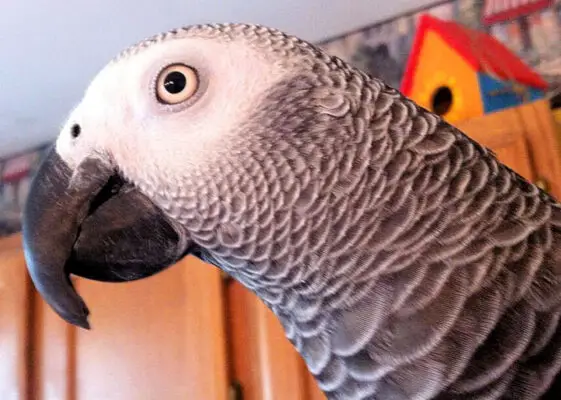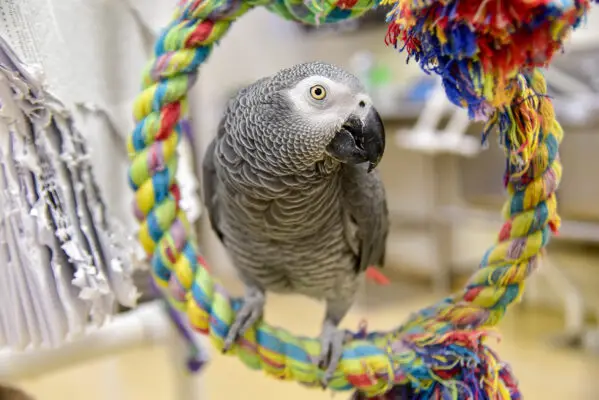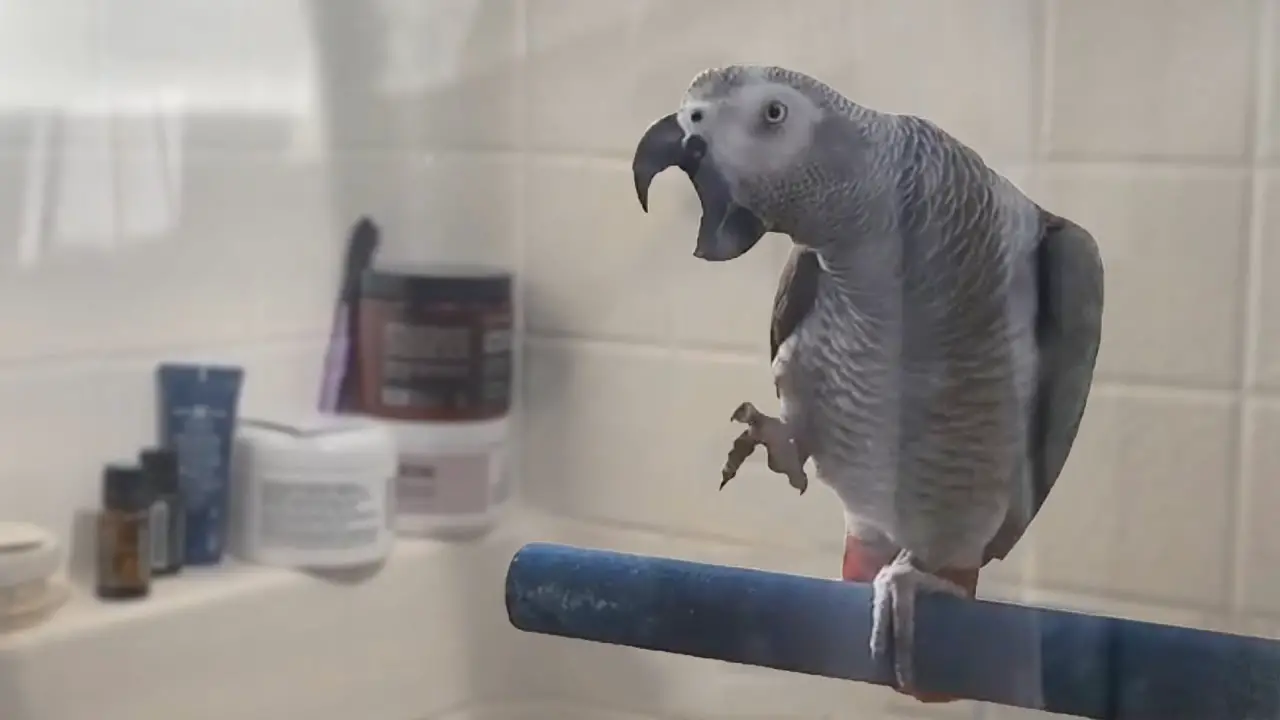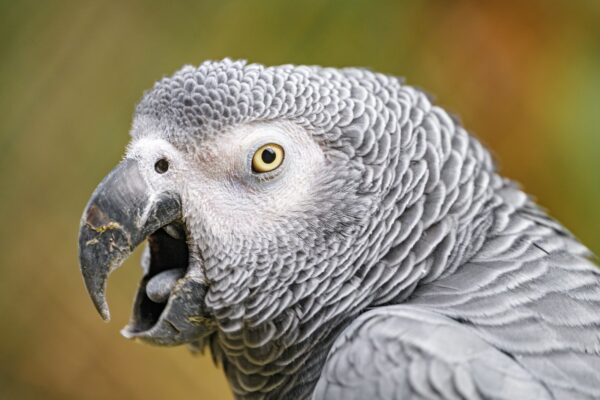Blogs, Avian Articles
Are African Grey Parrots Loud? Find Out Here
Are African Grey Parrots Loud? Find Out Here
Do you find yourself wondering about the noise level of African Grey parrots? African Grey parrots are known for their intelligence and stunning beauty, but they are also famous for their vocalizations. If you’re considering welcoming one of these magnificent birds into your home, it’s important to understand their noise level and how to manage it effectively.
In this article, we will explore the vocalizations of African Grey parrots and provide practical tips on how to control their noise level. Whether you’re a prospective owner or a current caregiver, this information will help you create a peaceful environment for both you and your feathered friend.
Key Takeaways:
- African Grey parrots are known for their vocalizations and can be noisy.
- Understanding their vocalizations will help you gauge the level of noise they produce.
- Managing the noise levels in your home is possible through various techniques.
- By implementing strategies to minimize their vocalizations, you can enjoy a quieter environment.
- Creating a harmonious living environment with an African Grey parrot is achievable with the right approach.
Understanding African Grey Parrot Vocalizations

African Grey parrots are known for their impressive vocal abilities. These intelligent birds can mimic a wide range of sounds, including human speech and various environmental noises. Understanding their vocalizations can provide valuable insights into their behavior and communication.
When it comes to African Grey parrot sounds, they can vary in volume and complexity. These parrots are capable of producing both soft and loud vocalizations, depending on their mood and surroundings. Some African Grey parrots may naturally be more noisy, while others may be quieter in comparison.
The vocal repertoire of African Grey parrots includes whistles, screeches, chattering, and a wide array of unique sounds. They can also imitate familiar sounds from their environment, such as doorbells, phone rings, or even the sound of a microwave. This remarkable ability makes them fascinating companions and natural entertainers.
It’s important to note that African Grey parrots use vocalizations not only for communication but also for self-expression and social interactions. They may vocalize to express happiness, excitement, or even frustration. By paying attention to their sounds and body language, you can better understand their needs and emotions.
While African Grey parrots can be noisy at times, it’s crucial to provide them with a stimulating and enriching environment to keep them mentally and physically engaged. Providing toys, puzzles, and social interaction can help alleviate excessive vocalizations and prevent boredom.
Quote: “African Grey parrots are incredibly talented mimics and can replicate a variety of sounds, including your own voice. This ability adds to their charm and makes them a popular choice among bird enthusiasts.” – Avian expert, Dr. Jane Williams
The Importance of Training and Socialization

African Grey parrots can benefit from training and socialization to help manage their vocalizations. Through positive reinforcement and rewards-based training methods, you can teach your parrot to modulate their volume and learn specific vocal commands.
Spending quality time with your African Grey parrot and engaging in interactive activities can also help reduce excessive vocalizations. Incorporate regular playtime, training sessions, and mental stimulation to keep your parrot occupied and content.
It’s important to remember that African Grey parrots have different personalities and will express themselves vocally in unique ways. Some individuals may naturally be noisier than others. By understanding their vocalizations and providing a nurturing environment, you can enjoy the companionship of these remarkable parrots.
| Vocalization Types | Description |
|---|---|
| Whistles | African Grey parrots can produce various whistles, ranging from short bursts to longer melodies. |
| Screeches | These high-pitched vocalizations can be used to express excitement, fear, or to gain attention. |
| Chattering | African Grey parrots often engage in chatter, creating a continuous stream of vocalizations that may signify contentment or the desire for social interaction. |
| Mimicry | One of the most impressive abilities of African Grey parrots is their mimicry. They can imitate a wide range of sounds, including human speech, environmental noises, and other bird species. |
Managing Noise Levels in African Grey Parrots
Living with an African Grey parrot can be a rewarding experience, but these intelligent birds are known for their vocalizations. If you’re looking to manage the noise level in your home, here are some practical tips to help create a quieter environment:
1. Establish a Routine
African Grey parrots thrive on routine, so it’s important to establish a consistent schedule. By providing regular feeding times, play sessions, and quiet periods, you can help reduce their need for attention-seeking vocalizations.
2. Provide Mental Stimulation
A bored parrot is more likely to be noisy. Keep your African Grey entertained with toys, puzzles, and interactive activities. This mental stimulation will not only keep them occupied but can also help reduce excessive vocalizations.
3. Offer a Quiet Retreat
African Grey parrots need a space where they can retreat and feel secure. Create a cozy corner or a designated area in their cage where they can go when they want some peace and quiet. This will help them feel safe and may result in less vocalization.
4. Use Positive Reinforcement
Positive reinforcement is a powerful tool for training your parrot. Reward quiet behavior and ignore excessive vocalizations. Over time, your African Grey will learn that being calm and quiet brings positive attention and rewards.
5. Seek Professional Guidance
If your African Grey parrot’s vocalizations are causing significant disruptions and you’re having difficulty managing the noise level, it’s advisable to consult with an avian behavior specialist or veterinarian who can provide professional advice tailored to your specific situation.
By implementing these strategies, you can effectively manage the noise level of your African Grey parrot and create a more peaceful coexistence. Remember, patience, consistency, and positive reinforcement are key to fostering a quieter environment for you and your feathered companion.
Conclusion
In conclusion, understanding the vocalizations of African Grey parrots is essential for creating a harmonious living environment with these intelligent birds. Throughout this article, we have explored the noise levels of African Grey parrots and provided tips for managing their vocalizations.
By being aware of their natural tendencies to communicate through various sounds, you can better anticipate and control the noise level in your home. Implementing techniques such as environmental enrichment, positive reinforcement, and establishing a consistent routine can help minimize excessive vocalizations.
Remember, African Grey parrots are known for their exceptional ability to mimic and vocalize, but with patience and consistent training, you can create a quiet and comfortable space for both you and your parrot. By following the guidelines shared in this article, you can strike a balance that allows you to appreciate their remarkable vocalizations while ensuring a peaceful living environment.
FAQ
Are African Grey parrots loud?
African Grey parrots are known for their vocalizations and can be noisy. They have the ability to mimic human speech and various sounds, which can contribute to their noise level. However, each parrot’s individual personality and environment can also play a role in determining how loud they are.
What are the noise levels of African Grey parrots?
African Grey parrots can produce a range of sounds, including whistles, squawks, and mimicry of human speech. The volume can vary, but they have the potential to be quite loud. It’s essential to understand that their noise level can be influenced by their surroundings, interactions, and overall well-being.
How can I manage the noise level of my African Grey parrot?
To manage the noise level of your African Grey parrot, you can try a few techniques. Providing them with adequate mental and physical stimulation can help reduce excessive vocalizations. Training them to speak at appropriate times and rewarding quieter behavior can also be helpful. Creating a calm and enriched environment can promote quieter behavior as well.
Can African Grey parrots be quiet?
While African Grey parrots are known for their ability to vocalize, they can also be trained to be quieter. It’s important to note that complete silence is not realistic or healthy for these parrots. However, through training and environmental management, you can encourage your African Grey parrot to lower their noise output and be more controllable.
Should I be concerned about the noise level of an African Grey parrot?
The noise level of an African Grey parrot should be carefully considered before bringing one into your home. Their vocalizations can be disruptive in certain settings, such as apartments or shared living spaces. It’s crucial to assess your living situation and ensure that you can provide a suitable environment for both the parrot and yourself.


